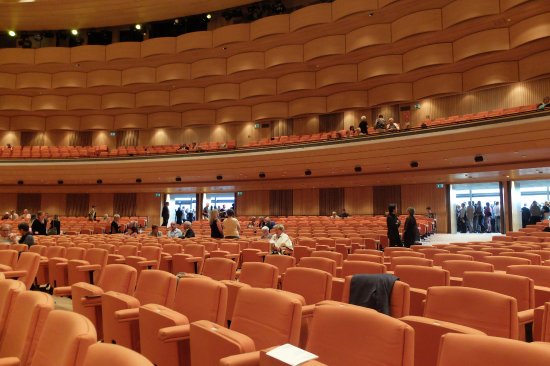Brucknerhaus to resume concerts for small audiences
mainThe Brucknerhaus in Linz , upper Austria,will reopen on July 5 with a one-hour concert of music by exiled Jewish composers. A week later, the Orchester Wiener Akademie and Martin Haselböck will perform Beethovens Pastoral Symphony.
Concerts will take place in the large hall of the Brucknerhaus, but with 400 instead of 1,400 in the audience and without an interval.
Each concert will be performed twice.
These are tentative first steps towards a resumption.






Comments